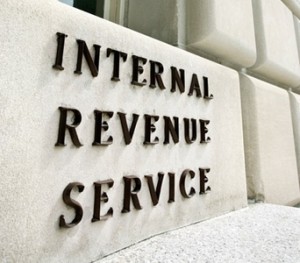Politics trumps common sense in IRS tax collection effort

Let's say you ran a business that had millions of dollars in uncollected revenue, and it would take $100,000 to collect it. Spending that extra money seems like a “no-brainer” decision. But if you’re the United States government with $385 billion in underpaid or unpaid taxes, and it will take $1.5 billion to collect them, you act as if you don’t have a brain.
The Obama administration recommended the extra $1.5 billion to collect the money, but Congress said no. The combination of Washington polarization, a political inclination against all non-defense expenditures and the negative view of the IRS has stymied the effort to streamline IRS systems and staff up to meet the revenue shortfall.
This decision comes despite the fact that the uncollected taxes represent about one-third of the current trillion dollar plus federal deficit. Nina E. Olson is the national taxpayer advocate and serves as an independent watchdog within the IRS. She strongly supports the additional expenditures:
"You want to make sure you're not abusing the taxpayers by letting dollars go out the door," she told the Associated Press. “Otherwise, taxpayers are going to get disgusted and lose faith in the tax system.”
Olson points out that the additional $1.5 billion would not only allow for the collection of lost revenues, but would also vastly improve services by the agency.
"The imbalance between its workload and its resources is becoming unmanageable," Olson wrote in her annual report on the IRS. One example she cited is the increased reliance by the agency on computer programs, limiting personal contact the agency has with taxpayers and resulting in an erosion of the rights of people who have disputes with the IRS.
From a Republican perspective, it is all about the growth of government, and the problems inherent in that growth. The issue, according to Rep. Charles Boustany Jr., R-La., a top member of the tax-writing House Ways and Means Committee, is that the tax system "has grown more complex and confusing over the years, reaffirming the need for comprehensive tax reform" - a top Republican priority. He made no mention of increasing the IRS budget or dealing with the under-collection of tax revenues.
That desire by Republicans for simpler government is what makes the president’s recent proposal to consolidate and streamline six government agencies so interesting. The move is intended to simplify the sprawling regulatory bureaucracy, and Obama can't actually make the move without Congressional approval. The plan would merge Commerce with the Small Business Administration, the Office of the US Trade Representative, the Export-Import Bank, the Overseas Private Investment Corporation, and the Trade and Development Agency.
From a strategic perspective, the consolidation of six departments fits right into the Republican playbook. But already, GOP politicians are taking pot shots at the plan, saying that it won’t accomplish very much from a budgetary perspective. In addition, the Republicans are suspicious of the timing of the announcement – right in the middle of the hotly contested Republican presidential primary in South Carolina – and wary of the request to grant fast-track authority on the legislation.
Sen. Orrin Hatch (R., Utah), the top Republican on the Finance Committee overseeing trade issues, told the Wall St. Journal :
"the timing of this announcement and the failure to consult Congress raise questions about the president's commitment to a real reorganization and reduction in the size of the federal government."
Other conservatives object that government processes are never as efficient or rewarding as promised, and therefore the very nature of president’s plan and its outcomes are suspect.
There can be little doubt that Obama’s timing is intended to draw some of the spotlight away from the Republican primary, but the idea of streamlining government and saving an anticipated $3 billion over 10 years should deserve serious consideration. The real question is whether anyone in American politics is willing to trade political position for statesmanship, or, in the case of the IRS, partisanship for good sense.




